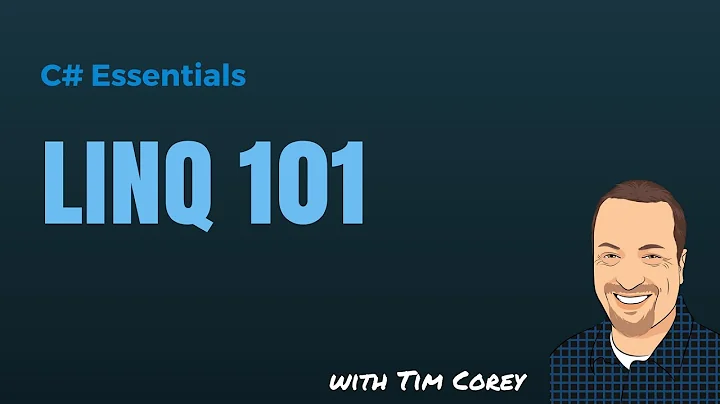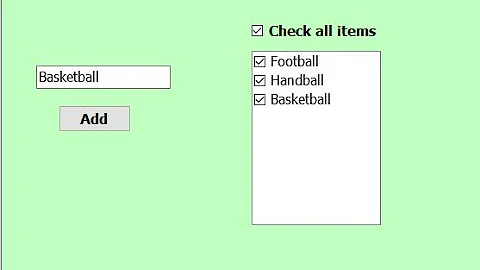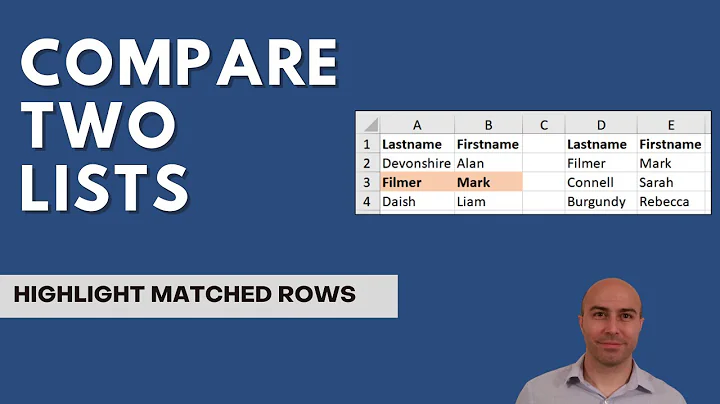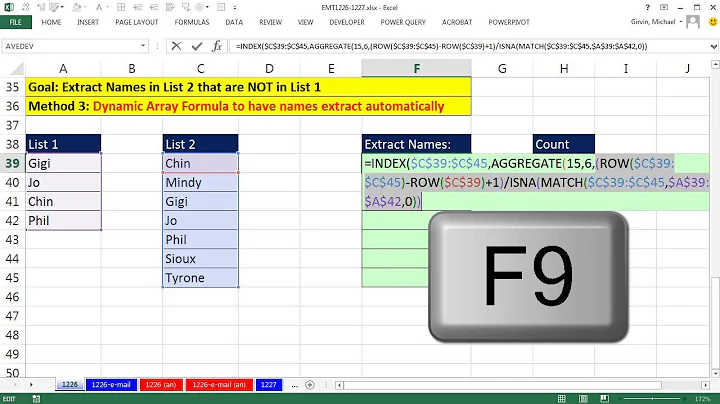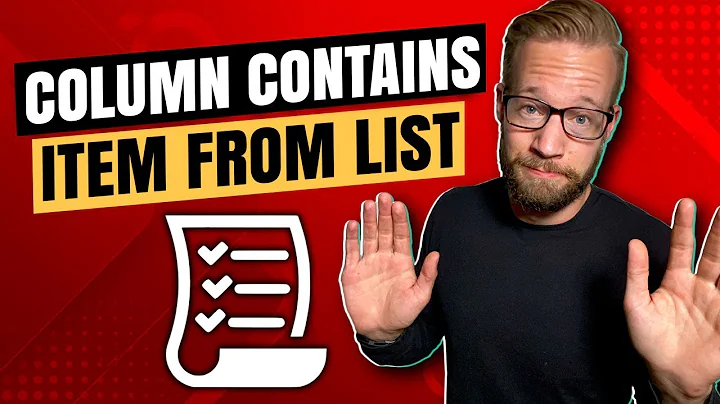Does .NET have a way to check if List a contains all items in List b?
Solution 1
If you're using .NET 3.5, it's easy:
public class ListHelper<T>
{
public static bool ContainsAllItems(List<T> a, List<T> b)
{
return !b.Except(a).Any();
}
}
This checks whether there are any elements in b which aren't in a - and then inverts the result.
Note that it would be slightly more conventional to make the method generic rather than the class, and there's no reason to require List<T> instead of IEnumerable<T> - so this would probably be preferred:
public static class LinqExtras // Or whatever
{
public static bool ContainsAllItems<T>(this IEnumerable<T> a, IEnumerable<T> b)
{
return !b.Except(a).Any();
}
}
Solution 2
Included in .NET 4: Enumerable.All
public static bool ContainsAll<T>(IEnumerable<T> source, IEnumerable<T> values)
{
return values.All(value => source.Contains(value));
}
Solution 3
Just for fun, @JonSkeet's answer as an extension method:
/// <summary>
/// Does a list contain all values of another list?
/// </summary>
/// <remarks>Needs .NET 3.5 or greater. Source: https://stackoverflow.com/a/1520664/1037948 </remarks>
/// <typeparam name="T">list value type</typeparam>
/// <param name="containingList">the larger list we're checking in</param>
/// <param name="lookupList">the list to look for in the containing list</param>
/// <returns>true if it has everything</returns>
public static bool ContainsAll<T>(this IEnumerable<T> containingList, IEnumerable<T> lookupList) {
return ! lookupList.Except(containingList).Any();
}
Related videos on Youtube
Comments
-
Matt Haley almost 2 years
I have the following method:
namespace ListHelper { public class ListHelper<T> { public static bool ContainsAllItems(List<T> a, List<T> b) { return b.TrueForAll(delegate(T t) { return a.Contains(t); }); } } }The purpose of which is to determine if a List contains all the elements of another list. It would appear to me that something like this would be built into .NET already, is that the case and am I duplicating functionality?
Edit: My apologies for not stating up front that I'm using this code on Mono version 2.4.2.
-
Colonel Panic over 8 yearsSee also stackoverflow.com/questions/332973/…
-
Colonel Panic over 8 yearsYour algorithm is quadratic O(nm). If the lists are sorted, testing if one is a subset of another should be possible in O(n+m) time.
-
-
 Nils over 14 yearsThis is untested, but wouldn't return b.Except(a).Empty(); be much more readable ?
Nils over 14 yearsThis is untested, but wouldn't return b.Except(a).Empty(); be much more readable ? -
Peter Stephens over 14 yearsExcept that Empty() doesn't return a boolean. It returns an IEnumerable<T> with no items.
-
Matt Haley over 14 yearsThis requires Linq right? If so, I don't think that's available in Mono, which is what I'm using at the moment.
-
Jon Skeet over 14 yearsYou can use LINQ to Objects in Mono, I believe... but it would be helpful if you'd state the requirements in the question to start with. Which version of Mono are you using?
-
Jon Skeet over 14 yearsI've just checked the sources for Mono 2.4.2.3, and it definitely includes LINQ to Objects.
-
drzaus almost 11 yearssimilarly: Contains Any =
public static bool ContainsAny<T>(this IEnumerable<T> haystack, IEnumerable<T> needle) { return haystack.Intersect(needle).Count() > 0; }. I tried some quick performance comparisons tohaystack.Count() - 1 >= haystack.Except(needle).Count();andIntersectseemed to do better most of the time. -
drzaus almost 11 yearssheesh...use
Any()notCount() > 0:public static bool ContainsAny<T>(this IEnumerable<T> haystack, IEnumerable<T> needle) { return haystack.Intersect(needle).Any(); } -
Rohit Vipin Mathews over 8 years
list l = new List<T>(check);I dont think this would compile and if it does, its totally unecessary ascheckis already a list -
Colonel Panic over 8 yearsIf the lists are length n and m, what's the time complexity of this algorithm?
-
Jon Skeet over 8 years@ColonelPanic: Assuming no hash collisions, O(n+m).
-
 Bojan over 3 yearsIf two lists are identical, this will return false, because there wouldn't be Any() elements found after the Except()
Bojan over 3 yearsIf two lists are identical, this will return false, because there wouldn't be Any() elements found after the Except() -
Jon Skeet over 3 years@Bojan: No, it will return true, because the expression starts with
!. See dotnetfiddle.net/QdXPy7 for a runnable example.


